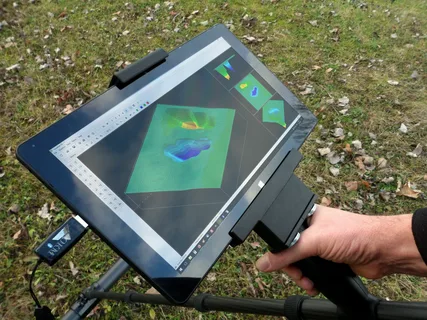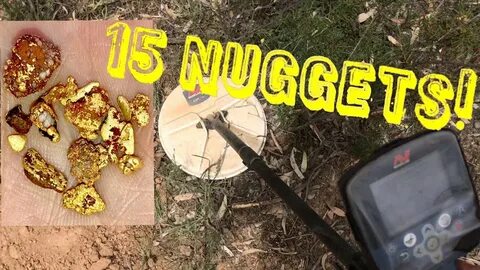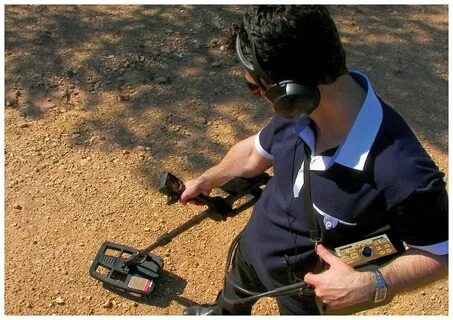Metal Detector Finder: How to Choose the Best Option
When it comes to finding the right metal detector, there are a plethora of options available in the market. Whether you are a beginner or a seasoned detectorist, it can be overwhelming to choose the best option that suits your needs. In this guide, we will explore the key factors to consider when selecting a metal detector finder, including features, budget, and intended use. By the end of this article, you will have a better understanding of how to choose the best metal detector finder for your treasure hunting adventures.
When choosing a metal detector finder, it’s important to consider factors such as the type of hunting you’ll be doing (e.g. coin shooting, relic hunting, gold prospecting), the type of terrain you’ll be covering (e.g. beach, park, rough terrain), and your level of experience (beginner vs. advanced). Other considerations include the size and weight of the detector and additional features such as ground balance, target discrimination, and waterproof capabilities. Researching and reading reviews on different models can help you make an informed decision based on your specific needs.
10 Best Metal Detector Finder for Beginners
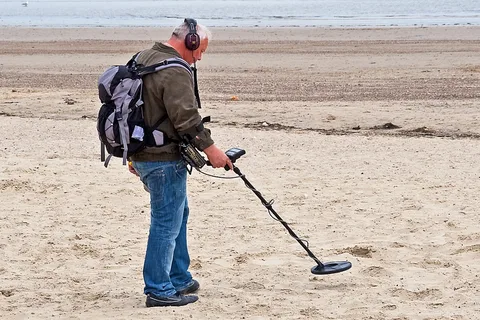
Using a metal detector finder can be an exciting and rewarding hobby. Whether you are a beginner or a seasoned detectorist, finding the right metal detector for your needs is crucial. With so many options available on the market, it’s important to consider factors such as sensitivity, discrimination, and ground balance. Additionally, understanding how to effectively use a metal detector finder can greatly improve your detecting skills. As technology continues to advance, the future of metal detecting looks promising with new innovations and features to enhance the experience.
1. Bounty Hunter TK4 Tracker IV Metal Detector: This beginner-friendly metal detector features a user-friendly interface and is known for its ability to locate coins, jewelry, and relics.
2. Garrett ACE 300 Metal Detector: With its easy-to-use controls and high-quality performance, this metal detector is great for beginners looking to explore the world of metal detecting.
3. Fisher F22 Weatherproof Metal Detector: This beginner-friendly metal detector is known for its weatherproof design and easy-to-read display, making it a great option for new detectorists.
4. National Geographic PRO Series Metal Detector: This metal detector is designed with beginners in mind and comes with a comprehensive learning guide to help new users get started on the right foot.
5. Minelab Vanquish 340 Metal Detector: Equipped with advanced features and intuitive controls, this metal detector is a great option for beginners looking to upgrade to a more sophisticated model.
6. Nokta Makro Simplex+ Waterproof Metal Detector: Known for its user-friendly design and waterproof construction, this metal detector is a great choice for beginners who want to explore various terrains.
7. Teknetics EuroTek PRO Metal Detector: This lightweight and easy-to-operate metal detector is perfect for beginners who want a reliable and user-friendly device to start their metal detecting journey.
8. XP ORX Wireless Metal Detector: With its wireless technology and customizable settings, this metal detector offers beginners a high level of performance and versatility.
9. Tesoro Silver uMax Metal Detector: This entry-level metal detector is perfect for beginners who want a reliable and easy-to-use device for their treasure hunting adventures.
10. Minelab X-TERRA 305 Metal Detector: Featuring a simple and intuitive interface, this metal detector is a top choice for beginners who want a reliable and budget-friendly device to start their hobby.
Choosing the Right Metal Detector Finder for You

Choosing the right metal detector finder for you depends on a few factors, including your level of experience, the type of treasure you want to find, and your budget. If you are a beginner, a basic model with adjustable sensitivity and discrimination settings may be a good starting point. If you are more experienced and looking for specific types of metals, a model with specialized search modes and target ID features may be more suitable.
Consider the environment in which you will be using the metal detector. If you plan to search in wet or underwater areas, look for a waterproof model with a submersible coil. If you will be searching in heavily mineralized soil, a detector with ground balance capabilities will be important.
Another factor to consider is the weight and ergonomics of the metal detector. If you plan to use it for long periods of time, a lightweight and comfortable design will be beneficial.
Finally, consider your budget. There are metal detectors available at a wide range of price points, so it’s important to find a balance between the features you need and what you can afford. Research different models and read reviews to help make an informed decision.
The Benefits of Using a Metal Detector Finder
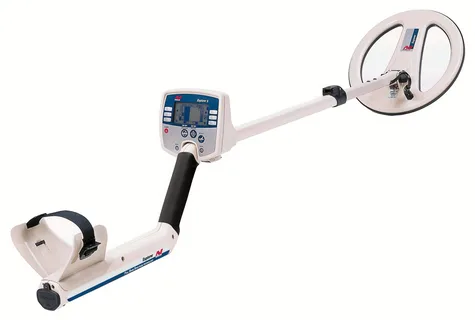
Using a metal detector finder can be incredibly beneficial for a variety of reasons. Firstly, it can help individuals locate lost items such as jewelry, coins, or other small metal objects. This can be especially useful for individuals who frequent beaches, parks, or other outdoor areas where small items can easily be misplaced.
Additionally, metal detector finders can also be used for more serious purposes such as locating buried pipes, cables, or other metal infrastructure. This can be especially useful for construction and maintenance workers who need to avoid damaging existing infrastructure during excavation or ground disturbance.
Metal detector finders can also be used for hobbyists who enjoy treasure hunting or exploring historical sites. Many individuals use metal detectors to uncover artifacts and other items of interest, adding an element of excitement and adventure to their outings.
Overall, the benefits of using a metal detector finder are numerous and varied, making it a valuable tool for a wide range of individuals and purposes.
How to Use a Metal Detector Finder Effectively
See also: metal detector for gold
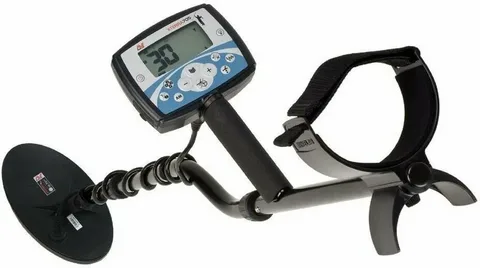
When using a metal detector, it is important to familiarize yourself with its settings and features. Take the time to read the user manual thoroughly in order to understand how to properly operate the device.
Before you begin searching, it is helpful to ground balance the metal detector to ensure accurate detection. This involves adjusting the settings to compensate for the mineral content in the soil, which can interfere with the detector’s performance.
As you search, keep the coil close to the ground and move it in a slow, sweeping motion. Be sure to overlap each sweep to ensure thorough coverage of the area. Listen for any changes in the detector’s audio signals or visual indicators, as these can signal the presence of metal.
When you do detect a target, use a pinpointing feature or technique to determine the precise location of the metal object. Once you have located the target, use a handheld digger or trowel to carefully excavate the area, taking care not to damage the object in the process.
Remember to respect local laws and regulations regarding metal detecting, as well as any private property rights. Obtain permission before detecting on private property, and always fill in any holes you dig.
With practice and patience, you can effectively use a metal detector to find a variety of metal objects, from coins and jewelry to buried artifacts.
Top Tips for Metal Detecting with a Metal Detector Finder
1. Research your area: Before starting your metal detecting journey, it’s essential to research the area you plan to search. Look for historical sites, old maps, and any relevant information that can help you pinpoint potential hotspots.
2. Practice with your detector: Familiarize yourself with your metal detector and its settings before heading out. Practice using it in your backyard or a local park to get a feel for how it works and how to interpret its signals.
3. Use the right settings: Adjust your metal detector’s settings based on the type of terrain and the targets you’re searching for. Different settings work best for different conditions, so be sure to experiment and find what works best for you.
4. Choose the right tools: In addition to your metal detector, consider investing in other tools like a pinpointer, digging tools, and a pouch for storing your finds. These will make your metal detecting experience more efficient and enjoyable.
5. Respect the environment: Always obtain permission before metal detecting on private property, and be mindful of local regulations when detecting in public spaces. Fill in any holes you dig and pack out any trash you find to leave the area as you found it.
6. Stay patient and persistent: Metal detecting can be a waiting game, so be patient and persistent in your searches. You may not strike gold on your first outing, but with time and dedication, you’re likely to uncover some valuable finds.
7. Join a metal detecting club: Consider joining a local metal detecting club to connect with other enthusiasts, share tips, and learn from experienced hobbyists. This can be a great way to gain knowledge and make the most of your metal detecting adventures.
The Science Behind Metal Detector Finder Technology
Metal detector technology is based on the principles of electromagnetism and electromagnetic induction. When a metal object comes into contact with a magnetic field, electrical currents are induced in the metal, which in turn creates its own magnetic field. This disturbance in the original magnetic field is detected by the metal detector, which then signals to the user that a metal object is present.
The basic components of a metal detector include a coil of wire and a battery to create a magnetic field, as well as a receiver to detect any changes in the magnetic field caused by metal objects. Different types of metal detectors use varying technologies and frequencies to detect different types of metals and objects at different depths.
Modern metal detectors also incorporate advanced signal processing and filtering techniques to minimize interference from other sources of electromagnetic radiation, making them more accurate and reliable. Additionally, some metal detectors feature advanced target identification and discrimination algorithms to help users determine the type of metal object that has been detected.
Overall, the science behind metal detector technology involves the use of electromagnetism and electromagnetic induction to create and detect disturbances in magnetic fields caused by metal objects, and the use of advanced signal processing and filtering techniques to improve accuracy and reliability.
Exploring History with a Metal Detector Finder
Exploring History with a Metal Detector Finder offers an exciting way to uncover artifacts and relics from the past. By using a metal detector, enthusiasts can search for and discover buried treasures, coins, and other historical objects that can shed light on centuries-old civilizations and cultures. This hobby not only provides a hands-on experience in history but also promotes preservation and appreciation of our collective heritage. Additionally, it offers a unique and engaging activity for people of all ages to enjoy the outdoors while learning about the past.
Metal Detector Finder Reviews: What to Look For
Metal Detector Finder Reviews are a valuable resource for those looking to purchase a metal detector. When reading these reviews, there are a few key things to look for.
First, it’s important to consider the overall reliability of the metal detector. Look for reviews that discuss the durability and performance of the detector, as well as any potential issues or technical difficulties that users have experienced.
Additionally, consider the ease of use of the metal detector. Look for reviews that mention how easy or difficult the detector is to set up and operate, as well as any features that make it user-friendly.
It’s also helpful to look for reviews that discuss the accuracy and sensitivity of the metal detector. Pay attention to any comments about the detector’s ability to accurately locate and identify different types of metals.
Lastly, consider the value for money. Look for reviews that discuss the overall quality of the detector in comparison to its price, as well as any additional features or accessories that are included.
By paying attention to these key factors in metal detector reviews, you can make a more informed decision when it comes to purchasing a metal detector.
Metal Detector Finder vs. Traditional Methods of Detecting Metal
Metal Detector Finder is a device that uses electromagnetic fields to detect the presence of metal objects. It is typically handheld and can be easily moved around to scan a specific area. Traditional methods of detecting metal may include visually inspecting an area, using magnets, or even physically digging and excavating.
Metal Detector Finder offers the advantage of being able to quickly and accurately locate metal objects without the need for extensive manual labor. It is commonly used in applications such as treasure hunting, archaeological searches, construction projects, and security screenings.
Overall, Metal Detector Finder is a more efficient and precise method of detecting metal compared to traditional manual methods. It can save time and effort while providing reliable detection results.
The Future of Metal Detector Finder Technology
The future of metal detector finder technology is likely to see continued advancements in detection capabilities, including improved accuracy and sensitivity. This could include the development of more sophisticated signal processing algorithms, enhanced target discrimination features, and the use of advanced sensor technologies.
Additionally, there may be a greater focus on integrating metal detector finder technology with other technologies, such as artificial intelligence and machine learning, to further enhance its capabilities. This could lead to the development of smarter, more autonomous metal detectors that are able to adapt to different environments and conditions.
Furthermore, the future of metal detector finder technology may also see improvements in terms of user interface and ergonomics, making the devices more user-friendly and accessible to a wider range of users.
Overall, the future of metal detector finder technology looks promising, with potential for significant advancements in detection capabilities, integration with other technologies, and user experience. These developments could have a profound impact on the use of metal detectors in various fields, including security, archaeology, and resource exploration.

